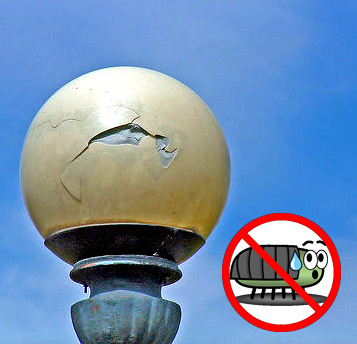Public state bugtracker

Every day I communicate with the city. Every day I see his sore spots, in the form of broken lanterns, holes on the roads, and so on and so forth. Some of these problems are eliminated with time, some continue to exist for months (or even years).
Essentially, every resident, including me, is the end user and customer of the city. And the authorities are direct designers and performers of the urban project (with our money). “Customer”, “performer”, “user” are familiar words, yes? Every day at work we hear them.
')
Unlike work, our current tools to inform the authorities about urban problems and control over their elimination were inherited, it seems, from the era of “analogue dinosaurs”. At most, writing paper (and electronic) complaints. But wait a minute, does the customer write a complaint at work when something does not suit him? Of course not! He uses a bugtracker for this (well, or in Russian: “an error tracking system”).
Let's think, is it possible to use this tool for the life of citizens and the work of the authorities? What will it give?
First of all, we get:
- a tool for informing authorities about urban problems and public control over their elimination;
- the emergence of an objective criterion for the quality of power ( “many hanging bugs? Sorry, but we need another city manager ...” );
But what city bugtracker will not do is:
- solve strategic urban tasks (it should be done by engineers and scientists, and not by ordinary people);
- replace emergency services 01, 02, 03 (by phone, because faster);
But change the lantern broken, roll up a hole in the road or scoop up snow in the winter - the singer can easily get these tasks from the bug tracker, don't you think?
PS Of course, these are all dreams. But all once begins with them.
UPD example from the comments: the already existing (albeit not state) service streetjournal.org
UPD 2 second example from comments: daisignal.ru
UPD 3 Perm service on road problems: dorogi59.ru
Source: https://habr.com/ru/post/120151/
All Articles